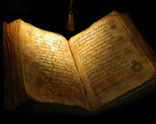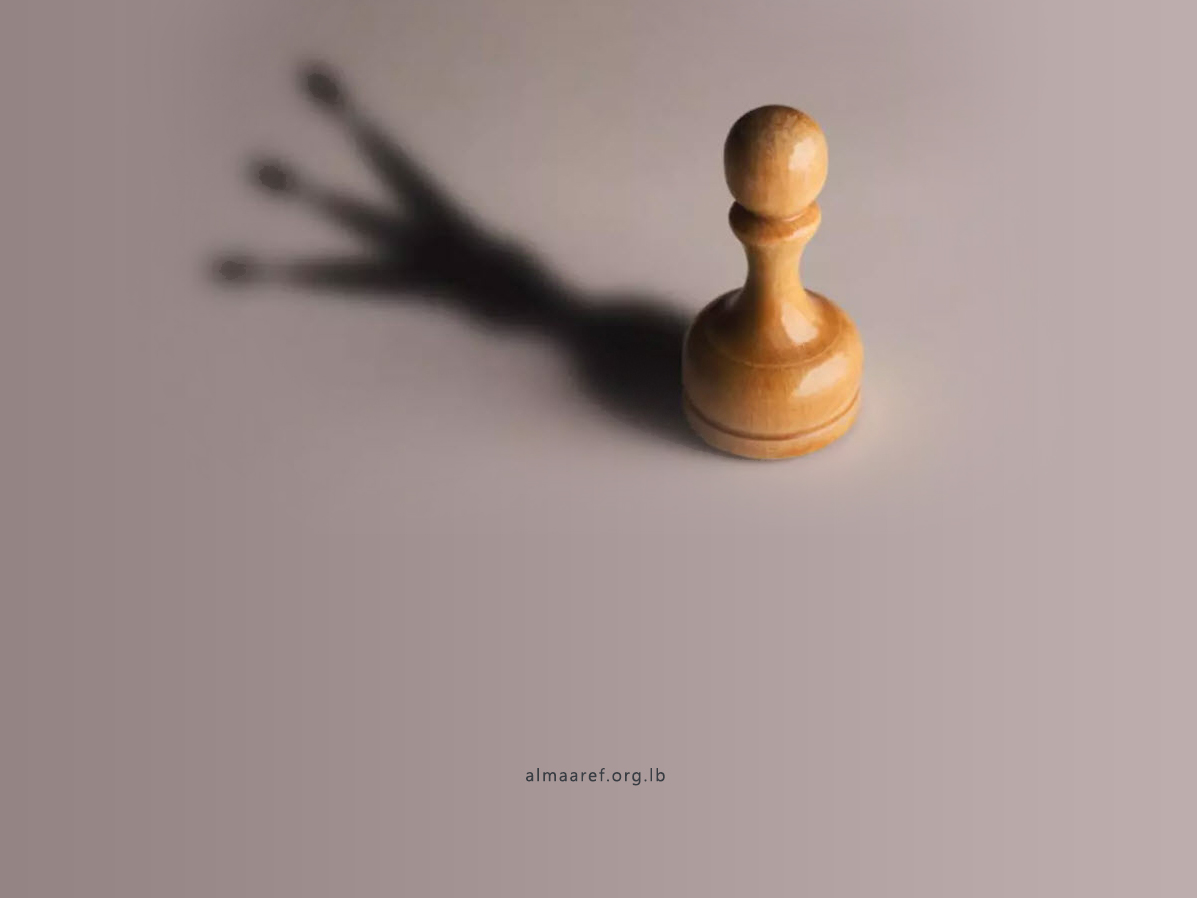During the occultation period of our twelfth Imam, Imam Muhammad bin Hassan al-Askari (A.S.), this power can exercised by the most learned Faqeeh and religious scholars of our time.
There are various traditions from the Holy Prophet (s.a.w.) and the Aim’ah (A.S.) which describe the powerful position and leadership of religious scholars. A few of these narrations are mentioned below:
a- The Holy Prophet (s.a.w.) has said:
"The scholars of my nation are like the Prophets of Bani Israel."
b- Again, it has also been reported from the Holy Prophet (s.a.w.) that: "The scholars are the inheritors of the Prophets."
c- Imam Hassan al-Askari (A.S.) has said: "And if there are amongst the scholars, one who:
- Safeguards himself,
- Protects his religion;
- Goes against his (illegitimate) desire;
- Is obedient to the command of his Lord;
Then it is the duty of the people to follow him."
The Holy Prophet (s.a.w.) has said:
"Nay! Do not refute an Aalim, and do not go against him and do not hate him but instead love him, for surely loving them is sincerity and hating them is hypocrisy. Whoever insults an Aalim is as if he has insulted me, and whoever insults an me is as if he has insulted Allah and whoever insults Allah then his path is towards hell. Whoever honours an Aalim is as if he has honoured me and whoever honours me is as if he has honoured Allah and whoever honours Allah, then his path is towards paradise."1
Many of us today do not honour Aalims and give them the respect which they deserve. It is sad to note that we consider ourselves equal to them. Furthermore, we do not value their guidance and thus consider it sufficient that we know our religious obligations.
However much we know the basic requirements of Islam, we still cannot deny the fact that the presence of religious scholars is important and necessary. If not for material benefits, we at least require the religious scholars for our spiritual benefits and to solve our common social problems as and when required. It is for this reason that most of us, inspite of our material gains and power, still seek comfort and mental ease from religious scholars.
Therefore, being proud to the scholars is not only a sin but logically an injustice towards them and a hypocrisy.
KIBR ON PEOPLE
This is the third kind of Kibr i.e. to consider oneself greater and superior than other fellow human beings.
The scholars of "llmul-Akhlaq" (Science of Ethics) describe a proud one as thus:
He will consider himself great but will value and honour others less. He will consider himself better in all respect and will never agree to be compared to other human beings.
He will always want to be ahead whilst walking with people and choose for himself a special position in the hearts of gathering so as to be easily distinguished.
He will always expect others to greet him first and show humility to him.
If advised, he will be irritated and refuse lo acknowledge the advice and when refuted in a matter, he will not accept it but will instead express his anger.
If anyone else besides him is praised, he will not tolerate it, instead he will always expect people to praise him and make themselves available to serve him at all times.
And if he is wealthy, he will avoid association with the poor even at congregational prayers and religious functions.
KIBR ON PEOPLE IN Quran
﴾And when it is said to him: guard against (the punishment of Allah, pride carries him off to sins therefore hell is sufficient for him, and certainly it is in an evil resting place﴿2
﴾And do not turn your face away from people in contempt nor go about in the land exulting over much; surely Allah does not love any self-conceited boasters.﴿3
KIBR ON PEOPLE IN HADITH
Imam Jaffer as-Sadiq (A.S.) has said:
"Kibr is to belittle the people and give them less than their right."4
It has also been reported from the same Imam (A.S.) that:
"Whoever degrades people and shows his might over them is a tyrant."5
TO SHOW-OFF WEALTH IS KIBR
Many wealthy people love to show-off and boast their wealth. Islam considers the rich as trustees and depositories of wealth bestowed upon them by Allah (s.w.t.). Instead of earning unnecessary fame and pomp, they are required to utilize their wealth for betterment of the deprived classes.
In Hadith al-Qudsi, Almighty Allah says:
"The rich are my agents and the poor are my family. Therefore whoever act miserly with them I shall put them into a burning fire and will care not about them."6
Many scholars of Ilmul-Akhlaq agree that wealth is the prime cause of evils such as pride, egotism, selfness, greed and injustice. It is for this reason that Islam has made it incumbent good ways of giving sadaqah (charity). Had it not made obligatory, the poor would continue to remain deprived.
The Holy Quran relates the incident of Qaroun as a lesson for the rich and warns them of a similar fate.
Qaroun belonged to the tribe of Prophet Musa (A.S.) and was also his close relative. In the Beginning he was pious but after accumulating wealth and treasures of gold in Tiyah, a desert in the Sinai Peninsula, where he engaged in alchemy and gold, Qaroun became proud and upon the believers.
The following verses of Surat-ul Qases (76 to 81) describes Qaroun’s wealth, Arrogance and the manner in which he met his fate.
"The rich are my agents and the poor are my family. Therefore whoever act miserly with them I shall put them into a burning fire and will care not about them."7
Many scholars of Ilmul Akhlaq agree that wealth is the prime cause of evils such as pride, egotism selfishness greed and injustice. It is for this reason that Islam has made it incumbent upon Muslims to pay Khums, Zakat, Fitra and recommended good ways of giving sadaqah (charity). Had it not been made obligatory, the poor would continue to remain deprived.
The Holy Quran relates the incident of Qaroun as a lesson for the rich and warns them of a similar fate.
Qaroun belonged to the tribe of Prophet Musa (A.S.) and was also his close relative. In the beginning he was pious but after accumulating wealth and treasures of gold in Tiyah, a desert in the Sinai Peninsula, where he engaged in alchemy and gold, Qaroun became proud and looked down upon the believers.
The following verses of Surat-ul-Qasas (76 to 81) describes Qaroun’s wealth, arrogance and the manner in which he met his fate.
﴾Surely, Qaroun was of the people of Musa, but he rebelled against them and we had given him a treasure, so much so that his hoards of wealth would certainly weigh down a company of men possessed of great strength. When his people said to him:do not exult, surely Allah does not like the exultant.﴿
And seek by means of what Allah has given you the future abode, and do not neglect your portion of this world, and do good (to others) as Allah has done good to you and do not seek to make mischief in the land, surely Allah does not love mischief makers.
He said: I have been given this only on account of the knowledge I have. Did he not know that Allah had destroyed before him of the generation those who were mightier in strength than he and greater assemblage? And the guilty shall not be asked about their faults.
So he went forth to his people in his finery. Those who desire this world’s life said:O would that we had the like of what Qaroun is given: most surely he is possessed of mighty good fortune.
And those who were given the knowledge said:Woe to you. Allah’s reward is better for him who believes and does good, and none is made to receive this except the patient.
Thus we made the earth to swallow up him and his abode: so he had nobody of helpers to assist him against Allah nor was he of those who can defend themselves.
The lesson which one learns from the incident of Qaroun is that his ingratitude and pride led to the punishment of Allah (S.W.T.)
Human beings, irrespective of their colour, language, culture or social position have one or the other praiseworthy quality hidden in them. Just as some shortcomings are common in human beings, in the same way some good qualities are also inherent in them. Moreover, these qualities would differ from person to person.
For instance, if one is rich it does not mean he is better and superior than a poor man. Who knows that the poor man would possess qualities superior to the rich man e.g. in knowledge, piety or Courage.
THE INCIDENT OF BAHLOOL
Once Haroon al-Rashid, the Abbaside Caliph and Bahlool were going to the Hammam (a public Bath). On the way,
Haroon asked Bahlool:
"What would my value be if I were a slave?"
Bahlool replied "Fifty diners."
Haroon, in an enraged voice remarked’:
"O mad man! How could that be? My own valuable clothes are worth that much or more "
Bahlool reacted to this, saying:
"The value I had suggested was for your clothes otherwise you yourself are of no value at all?"
Although Haroon thought that being a caliph, his value would be more if sold as a slave he forgot that in the market of slaves, the purchasers do not see the pre-status of a slave but his present strength and ability to work actively. Haroon’s easy and lusty lifestyle would not assist him in being of any use to his master. Therefore, one should never undermine others simply on account of their possessions.
CONSIDERING ONESELF PIOUS IS KIBR
People who consider themselves to be pious on account of their excessive worship or knowledge are also proud.
Allah (s.w.t.) has explicitly condemned in the Holy Quran those who consider themselves noble and pure.
﴾Have you not considered those who attribute purity to themselves? Nay, Allah purifies whom He pleases; and they shall not be wronged the husk of a data stone.﴿8
﴾Therefore, do not attribute purity to your soul; He knows him best who guards (against evils).﴿9
One may consider himself superior in knowledge and claims:
"I have a lot of knowledge or I have studied under guidance of so and so scholar, or I have spent so many years in seeking knowledge..."
Or considers himself better in worship and claims:
"I stay awake for whole nights or fast for so many days, or have been to Hajj and Ziyaraat for so many times."
Such people, without realizing it, are entrenched in walls of pride.
It was for this reason that Shaykh Abbas al Qummi, one of the great shiite scholars in Iran, when informed of thousands of people awaiting him to lead the prayers in Mashad al-Muaqaddas, avoided going for the purpose and declared to his associates that it was because of pride that over came him.
"How can I lead the prayers when they thought of many people saying their prayers behind me had already occurred ?" This was his humble reply.
SIGNS OF PRIDE IN MAN
The following are the signs evident in a proud person:
1- Whilst discussing a matter with associates, it will be difficult for him to accept the facts presented by them. If he acknowledges the other person’s view, it would be in a manner likely to create a feeling of an importance on his part and will never smile or express happiness for the same.
2- He will always avoid being the first to greet, especially those whom he considers below himself.
3- He will not pay attention to needs of the poor who are badly afflicted with poverty and will avoid sitting near them.
4- It will be a sign of disgrace for him to carry with his own hands the basic requirements for himself and his family such as rations of food. (This does not apply in circumstances which forces one to avoid such an action).
5- He will avoid wearing cheap and simple clothes and will always want to wear expensive clothes so as to distinguish himself from the poor. (The too does not apply to those who are compelled due to certain circumstances which threaten their legal status in a society).
6- He will always choose to sit in a gathering with people of high position and social status.
7- He will avoid dining with the poor, servants and those whom he considers below himself.
8- His conversation and other actions will portray his love for domination over others.
TREATMENT FOR KlBR
It is essential for a person suffering form Kibr to observe the following remedies so as to abstain from this destructive spiritual disease:
i. To remember the origin of his creation and the end of his life in this world.
The creation of man is from a drop of semen which is najis (impure) passed from the urinal passage into the womb where it gradually develops and takes the human form.
The Holy Quran describes the above in the following manner:
﴾So let man consider of what he is created; he is created of water pouring forth; coming from between the back and the ribs.﴿
He comes into this world weak and unable to care for himself hence burdening others to feed, clothe and bring him up.
Then Allah (s.w.t.) bestowed him with strength.
﴾Allah is He who created you from a state of weakness; then He gave strength after weakness.﴿10
Despite this strength, man is still weak in nature as he depends on various things for his well being such as food water, clothing, shelter, sleep and a spouse to fulfil his legitimate sexual desire as well as to ensure the continuation of his generation. Without all these, he cannot survive or live a happy life.
Moreover, there are things which man desires to have but cannot have. Many times he wants to remember things or wants to forget tragic events but cannot. All these prove man’s weakness.
Furthermore, death is inevitable. Whether one is wealthy or poor, famous or unknown a believer or an atheist he will have to die some day. Life after death is a different subject by itself, what concerns us is the reaction of the body upon death.
It is a widely known fact that a body decays hours after death giving unpleasant and foul smell. Islam, for this reason encourages an early burial. People who delay in burying their dead use artificial method for preserving the body.
Imam Ali (A.S.) reminding us about origin of our creation and eventual decayed state after death, says:
I am surprised by a proud person who by yesterday was a clot of (unclean) semen and will tomorrow be decayed dead body.
Simply put, how can one who was created of an unclean drop of semen and who will decay giving off a foul and unpleasant smell ever be proud or boast over anything?
- He should know that Kibr is only Allah’s (s.w.t.) quality.
This has been discussed at length earlier. However, the following is the incident which confirms Kibr as the quality of Allah (s.w.t.).
Once a man accused Imam Hassan bin Ali (A.S.) saying:
"Surely in you is pride."
The Imam (A.S.) reacted by saying:
"Never! Pride is for Allah alone bur in me is honour. The Almighty Allah has said:For Allah is the Honour and for His Prophet and for those who have brought faith."11
- To know that consequences of pride a humiliation in this world and painful chastisement in the hereafter.
Pride does not bring honour; instead it adds to disgrace and invites hatred from people. People abhor associating with one who loves self-praise and undermines their dignity.
In addition to disgrace in this world the proud will also be subject to everlasting punishment in the hereafter as already mentioned in the beginning.
In order to save oneself from the disgrace in this world and the punishment in the hereafter, one should avoid being proud.
-. To practice "AT TAWADHU" - humility and humbleness i.e. to consider oneself lower than others.
Arab poet has said:
"Be humble! you will be like that star which is evident for an onlooker on the surface of the water yet it is high above. And do not be like that smoke which exalts itself to the layers of the atmosphere only to disappear."
Humbleness is one of the qualities which Allah (s.w.t.) adores. There are various verses of the Holy Quran narrations which discuss the importance of humbleness. Few of them are mentioned below:
﴾And the servants of the beneficent God are they who walk on the in humility; and when the ignorant address them; they say: Peace﴿12
﴾Do not strain your eyes after what we have given certain classes of them to enjoy, and do not grieve for them, and make yourself gentle to the believer.﴿13
The Holy Prophet (s.a.w.) has said:
"Verily, the most beloved and nearest amongst you to be seated near me on the day of judgement is he whose character is best amongst you and is the most humble amongst you. And verily, the furthest from me on the day of judgement is Thartharoun’-the proud ones."14
Imam Jaffer as-Sadiq (A.S.) says:
"Verily, in heaven two angles have been appointed for the creatures. Whoever practices humility, they (both) raise him and whoever is proud, they (both) lay him down."15
In the above hadith, Imam (A.S.) explains that Allah (s.w.t.) raises the status of one who is humble and degrades one who is boastful and proud.
* Mujahidali A.R. Sheriff
1- Adh-dhunoob al-kabeera
2- Al Baqarah: 206
3- Luqman: 18
4- Al Kafi
5- Al Kafi
6- Kalimatullah
7- Kalimatullah
8- An Nisa 49
9- An Najm: 32
10- Rum: 54
11- Meezanul Hikmah
12- Al-Furqan: 63
13- Al-Hilr: 88
14- Biharul-Anwaar
15- Al KAFI




















